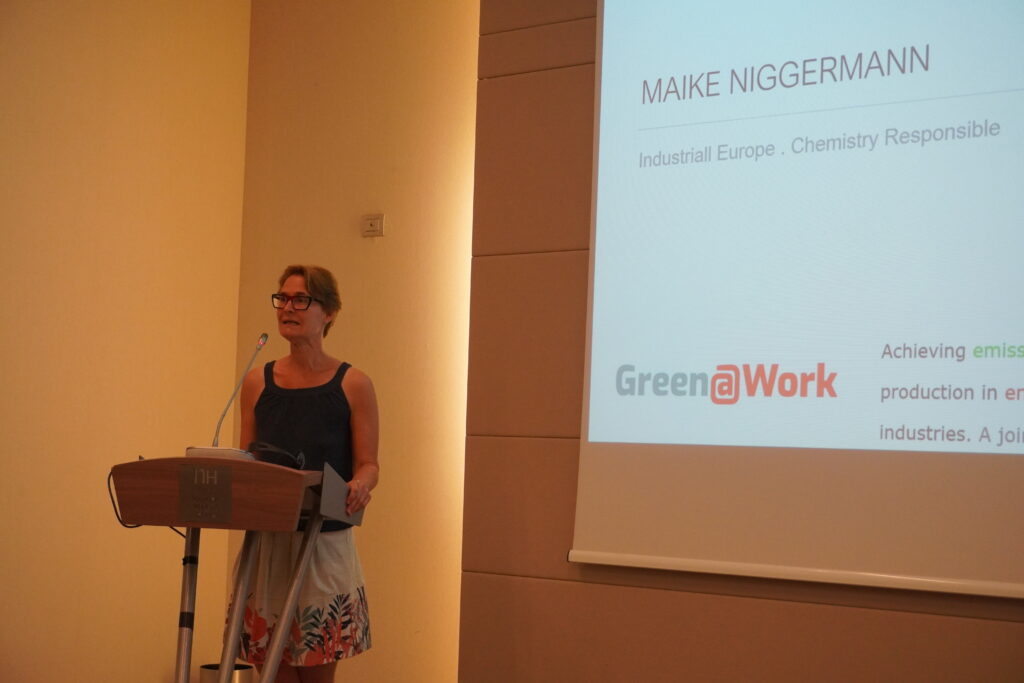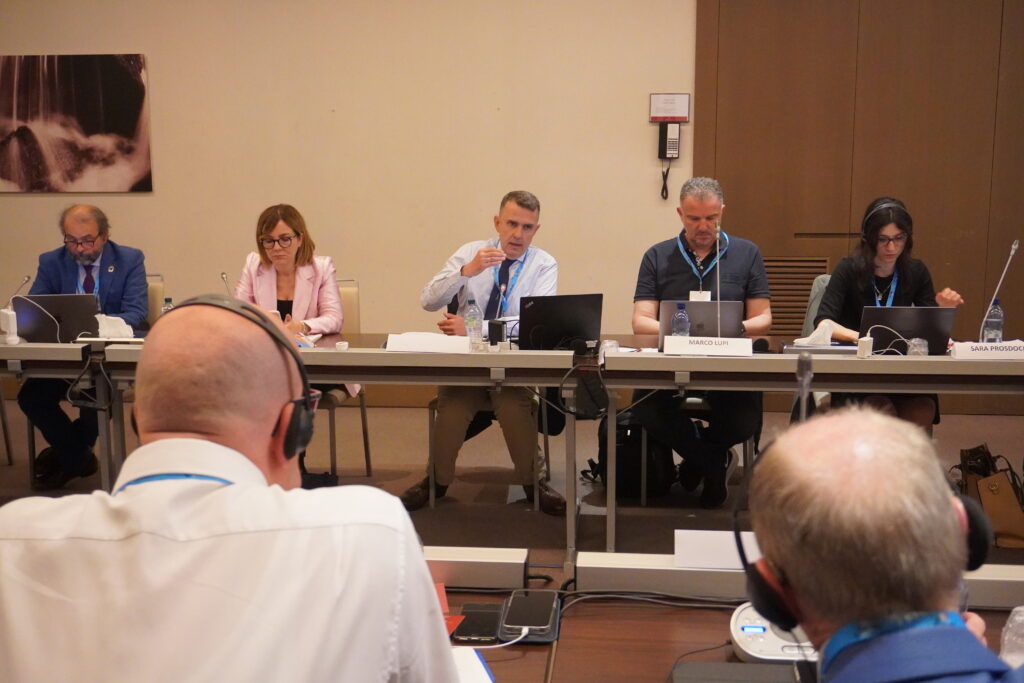
Maike Niggemann (industriALL Europe)
industriALL has passed a manifesto on social structural change, which primarily contains 5 demands: (1) transformation measures must be socially acceptable, (2) financial resources must be made available, (3) collective bargaining and social dialogue must be strengthened throughout Europe, (4) company rights and obligations must be clearly formulated and it needs (5) qualification measures in the sense of lifelong learning.
The overarching goal of the unions is to achieve the climate targets while preserving jobs. This represents an enormous challenge; so it’s not just the large number of jobs affected, it also requires various measures to maintain and replace them. An analysis of the labor market in the chemical and energy sector is fundamentally important for this.
Sectoral transformation paths with strong social components are needed. A technological path of transformation for the chemical industry is currently being followed, from which necessary laws, subsidies and social measures are derived.
It is important to remember that today not only current jobs are being negotiated, but also those for tomorrow’s generation.
„The transition has already started and is not in the future – we are in the middle of it and if we want to make it happen, we can’t wait to make it socially responsible now.“ Maike Niggemann
The transformation depends on government support. However, it must be clear that all this support is linked to social aspects. No measures may be adopted that do not take the preservation of jobs into account. The promotion of social dialogue in the individual countries, but also throughout Europe, is therefore essential for successful social structural change.
Dialogue is not equally possible in all European countries. On the one hand, there are no structures or employers‘ associations are fragmented. This is why events like these are so important for international exchange and pan-European strategic planning.

Stefano Soro (DG Grow)
The transformation also brings with it a change in jobs and it is important to invest in education and training. Therefore, the project “Pact for skills” was launched at European level with a total of 11 partnerships in various industrial sectors.
The chemical industry faces special challenges here. There is a lack of qualified people for the chemical labor market.
“An American study assumes that in 2026 25% of workers in the US chemical sector will retire and these jobs cannot be filled. This forecast can also be made for Europe.” Stefano Soro
The special requirements of the respective sector must meet the transition paths through co-determination of employees and social partners. This requires large financial investments.
The basic goals of the green transformation should be: Introduction of renewable energies and increasing the development autonomy of Europe.

Romina Mura (Parliamentary Labour Comission Chamber of Deputies – President)
The paradigm of the „Green Deal“ is based on the fact that an energy transformation must also be a social transformation. During and especially after the pandemic, this awareness-raising paradigm has evolved in Italy. Since the COVID crisis has shown that the development to date has led to uncertainties. In Italy there has not been too little commitment in recent years, but with a wrong focus.
Too much reliance was placed on passive political approaches. Active or activating politics, such as the transformation of production processes, were neglected.
As an institutional representation, it is aware of the responsibility that is borne. And it is aware that different instruments have to be developed in order to create new perspectives on the challenges. However, this can and must only work in social dialogue with the trade unions.
„It’s nice to see that we’re on the same wavelength and are daring to take a common European look at the transformation.“ Romina Mura